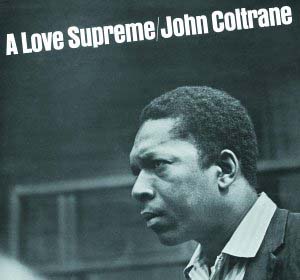I would imagine a
John Coltrane Jazz session was different to a Beatles session.
Very much so. Mr Coltrane was, if nothing else, a focused
individual. The Beatles could be quite purposeful in their own way but they
were much more prone to a lark. Jazz artists, in general, were more intense in
their dedication to their craft.
It was another one-day
session wasn’t it?
Yes, it was. I worked on some albums that were months in the
making. I’d often come into the studio steeling myself to spend another work
day listening to yet more overdubs on a track that some progressive rock
group had been producing for a full month already. But A Love Supreme hurtled by in one day.
And what did you
think of the poem?
Ah yes… the poem. Look as I’ve said several times during the
course of this… process. What do you call it?
A blog.
As I’ve said several times during the course of this… blog,
I’m not really someone who knows much about music and I always feel
uncomfortable sharing my views on the musical choices of those with more talent
than myself. But one does know something about the poetic form. I did study
classics at Oxford and I flatter myself that I have a very solid understanding
of verse and metre. And if there’s one thing I do know it’s that poetry should be
spoken aloud or read from the page. Poems should not be, for want of a better
term, honked.
So as I understand
it, he wrote a poem and then played it on the saxophone?
That’s what I’m led to believe. He composed a piece of
poetry and then instead of reading the words he just played their meter on his
saxophone and that was the tune. I did point out that this wasn’t a traditional
treatment of English prosody but he wasn’t moved by my objection. He made it
fairly clear that he felt my role was to clean things and so that’s what I did.
And the final result
is a religious tribute. A hymn if you like.
Well, I believe that’s how Mr Coltrane viewed the concept.
Although to my mind any sense of religious observance was nullified by the fact
that between takes the drummer told the bass player a decidedly ribald story
about the attentions he had received from some willing ladies after the last
concert they performed. The tale wouldn’t have fostered an especially pious
atmosphere even if the narrative involved only one lady who was his legal spouse, the
fact that there were multiple ladies involved certainly robbed the religious
mood of a large percentage of its sanctity.

Comments
Post a Comment